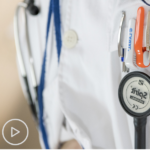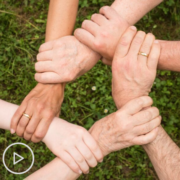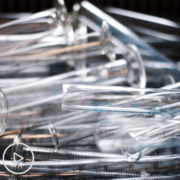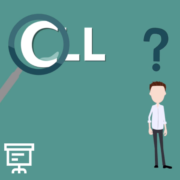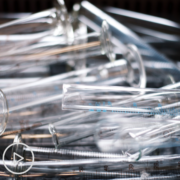Essential Lab Tests for CLL Patients from Patient Empowerment Network on Vimeo.
See More From The Path to CLL Empowerment
Dr. Danielle Brander provides an overview of essential lab testing for chronic lymphocytic leukemia (CLL) patients and discusses which tests should be repeated over time.
Dr. Danielle Brander is Director of the CLL and Lymphoma Clinical Research Program at Duke Cancer Institute. Learn more about Dr. Brander here.
Related Resources
Transcript:
Dr. Brander:
So, there are additional laboratory tests besides the genomic or the prognostic markers that patients should have at the time of diagnosis. One that all patients have is a test called the flow cytometry, and that is done often for CLL patients on the peripheral blood. It may also be done on the lymph node or the bone marrow. And this is a profile of the surface of the cells that help your pathologist and your oncologist to confirm that this looks like CLL.
So most patients when they’re told of the diagnosis will have this either from the blood or it’s found on the lymph node. Notably, it’s not required in all patients, and most patients, in fact, to have a bone marrow biopsy at the time of diagnosis unless there’s a concern about other blood counts being low, and it’s not clear why that is going on.
Most of the other tests besides the prognostic genomic genetic markers that we talked about such as FISH, or IGHV, or TP53 are routine tests. So patients will have a repeat blood count, and this should be a blood count with a differential of the white blood count. CLL is a problem of a type of white cells called lymphocytes. So on the differential of the types of white cells you’ll see the lymphocytes are usually marked clearly elevated. But the differential also makes sure that there’s no low other white blood cells such as neutrophils, which are important in fighting bacterial infection.
It’s also a good idea to have at the time – and most patients will – a baseline chemistry, which include the kidney and the liver function. Though definitely not common, some patients can have involvement of CLL of the liver or kidneys.
This is pretty rare, especially around the time of diagnosis. It’s helpful to have those baseline tests. It’s also helpful because the median age of diagnosis of CLL is usually the early 70s, and so a repeat of the baseline kidney and liver function might find other chronic health problems that are important to know moving forward.
Some of the other tests, baseline labs, are more patient specific, and might need follow-up. For example, if the blood count revealed anemia, which is a low hemoglobin or hematocrit, the cells that carry oxygen, your treating team might want to order additional tests for anemia and make sure that the anemia isn’t due to something totally unrelated to the CLL such as iron deficiency or B12 deficiency, etc. So, there might be additional lab tests depending on the additional screening tests that are obtained at that time.
One other test that I’ll – or two other tests that I’ll mention at diagnosis, 1.) Is immunoglobulins, mostly for patients that have had a problem with recurrent infections because patients can have low antibody levels associated with CLL, even if it’s not been treated. So, your team – if recurrent infections have been a problem – may check for those antibody levels, those immunoglobulin levels. A second test that can be helpful at baseline is a test called SPEP or serum protein electrophoresis, which looks for extra proteins in the blood. And again, this can be seen with CLL and other lymphomas, and especially depending on patient’s symptoms, your physician, and treating team might want to obtain those labs.
Again, there are good resources online including the NCCN, CLL and leukemia patient-specific sites that might give a better outline beyond what we can cover today of tests that might be helpful in your specific case.
There are labs and tests in CLL that are repeated over time. Two of the common ones obtained at baseline, the complete blood count and the chemistry, will usually be repeated at every visit after diagnosis for patients not being treated at the time of diagnosis. They’re part of the monitoring, so every three or four months after you’re diagnosed when you see your oncologist and you have an exam, your history of how you’ve been doing, and labs taken, the white count and the chemistries are all to be followed with time.
At the time of treatment, there’s often additional tests that might be done depending on the type of treatment you’re receiving to make sure you don’t have a specific risk for recurrent reactivation of infections, for example. So the testing might change at the time of treatment. And specific to the prognostic biomarkers, the genomic or genetic testing of the CLL that we mentioned, some of them are repeated with time and some aren’t. The FISH, which is obtained at the time of diagnosis is recommended to be repeated. If patients have treatment, the CLL goes into response, and then relapses because the FISH testing can change with time.
The IGHV mutation status, however, as long as it was felt to be an adequate appropriate sample, is a characteristic of the leukemia that doesn’t change with time and would not be repeated. Similar to FISH, it’s a good idea to test the TP53 at the – not always at the time of diagnosis, but before treatment to make sure there’s not TP53 mutation.
But then similar to FISH, if the CLL goes into response and relapses, it’s advisable to repeat the TP53 as that can change as patients have different treatment options and they both help to, as mentioned, inform the first treatment. They’re also helpful to have in mind as patients are being followed on treatments because some patients have a higher risk of the treatment to stop working, for example, if there are higher-risk genomic changes.
